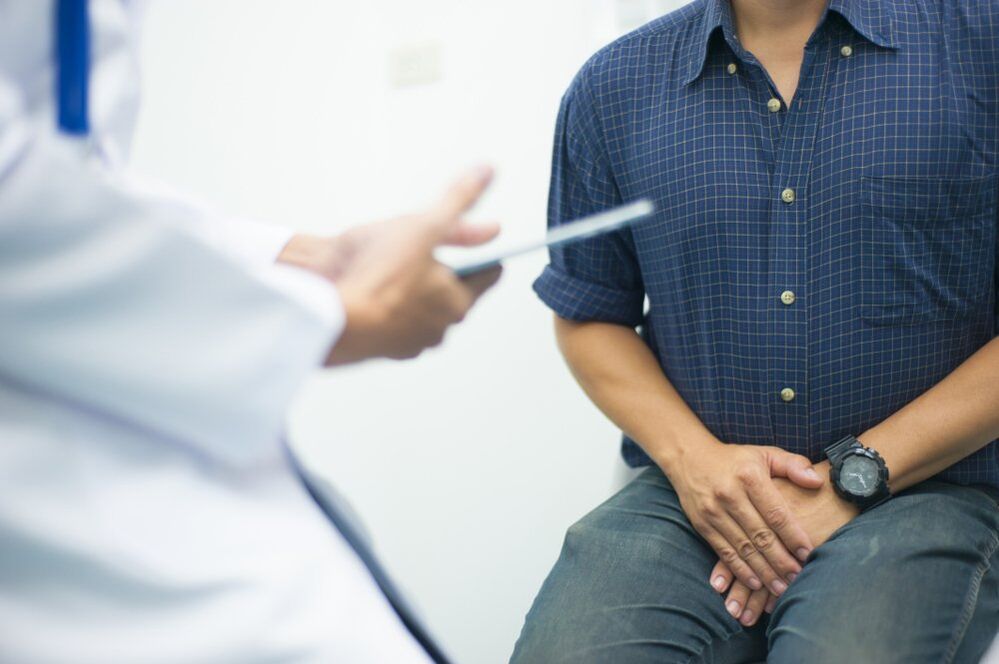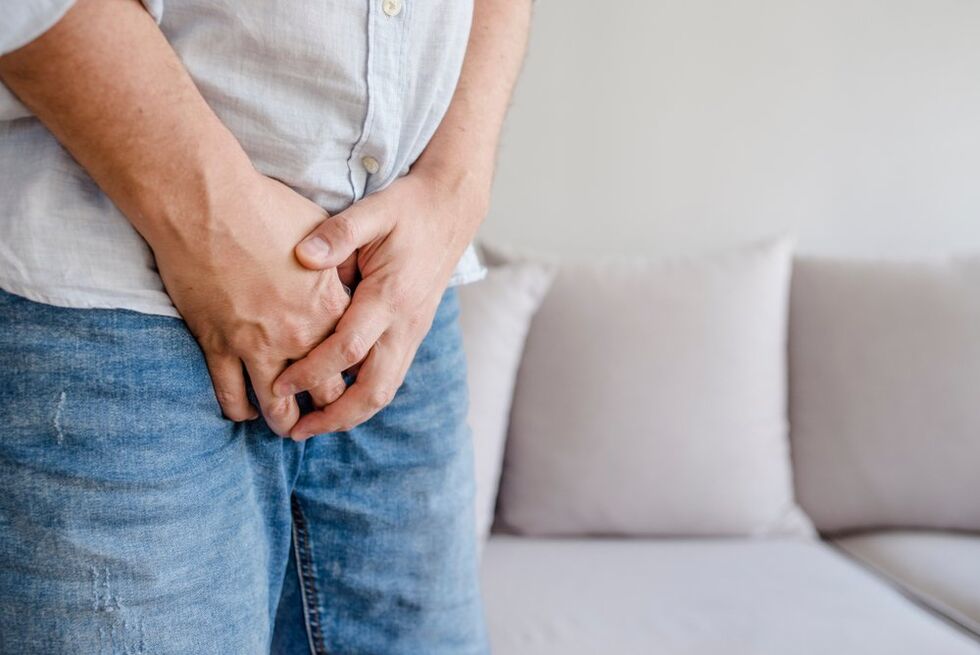
Prostatitis is a specific disease that is typical mainly for men of childbearing age. It is characterized by acute or chronic inflammation of the prostate - a man's second "heart".
It is not always easy to recognize the signs of prostatitis in men, especially if the pathology has a chronic course, without a previous acute stage. If the process is acute, then in this case the symptoms of prostatitis in men are quite typical and pronounced.
If a man has the first signs of prostatitis, he should immediately consult a doctor. Even a slight malaise, indicating the development of a disease of the genitourinary system, can have serious complications.
The ability to recognize the first symptoms of the inflammatory process allows you to timely diagnose the pathology and start treatment. Therefore, every man should get acquainted with them in order to avoid serious problems that prostatitis leads to.
The prostate and its role in a man's life
Although the prostate is small, a man can face many problems if its function is impaired. The prostate is a walnut-sized organ located between the penis and the bladder. The prostate produces a secret that mixes with sperm to form complete semen.
Unlike other prostate diseases, such as prostatic hypertrophy or prostate cancer, which often affect older men, prostatitis can develop at any age, but the incidence is highest between the ages of 30 and 50.
Types of prostatitis

Depending on the severity of the symptoms, the time of their appearance and the duration of the disease, two variants of the pathology are distinguished:
- Chronic prostate inflammation. Symptoms can be subtle and come and go over the course of several months. This is the most common form of prostatitis and the causes of the inflammation are usually non-infectious.
- Acute prostatitis. In this form, the symptoms of prostatitis in men are severe and develop suddenly. This variant of the disease most often provokes microbial infection, the condition can be serious and requires immediate treatment, up to hospitalization.
Problems of chronic prostatitis
The causes of prostatitis have long been studied, but the understanding of the essence of the process has undergone significant revisions in recent years. Chronic prostatitis, sometimes referred to as chronic pelvic pain syndrome, is characterized by a group of symptoms that can lead to a significant deterioration in men's daily quality of life. It is not always possible for a doctor to immediately identify chronic prostatitis, and choosing the subsequent treatment is no less difficult, since it depends on various causative factors and the symptoms of prostatitis in men.
Unlike previous approaches, the diagnosis and subsequent treatment is based on the separation of chronic bacterial prostatitis and other forms of the disease, which is considered a multifactorial disease. According to data published in Research and Reports in Urology in 2019, autoimmunity and systemic inflammation, nervous system dysfunction, and psychological causes play roles in the development of chronic inflammation.
Various symptoms related to the urinary organs, genitals, rectum and perineum are typical for chronic pelvic pain syndrome, and often men can be treated for other pathologies for a long time, until in the end it turns out that the problem lies in inflammation of the prostate.
Signs of prostatitis in men
If acute inflammation of the prostate occurs, it is relatively easy to identify, the manifestations are quite bright and pronounced. The first signs of prostatitis in men are:
- severe pain that radiates around the penis, testicles, anus, lower abdomen, or lower back. Emptying the bladder can be painful;
- problems urinating, pain when the bladder is full, frequent urination (especially at night), intermittent urination, urgent urination and sometimes blood in the urine;
- against the background of severe swelling of the prostate and severe pain, acute urinary retention is possible;
- malaise, fever, nausea;
- mild thick urethral discharge, odorless.
If these or other signs of prostatitis in men are detected, you should immediately contact a therapist or urologist.
Chronic inflammation: symptoms of prostatitis in men
You can speak of a chronic process if the following symptoms of prostatitis in men have been noted at least in the last three months:
- Pain around the penis, in the testicles, in the anus, in the lower abdomen or in the lower back of a pulling, pressing or aching nature.
- Painful urination, frequent or urgent urination, especially at night, or intermittent urination.
- an enlarged or tender prostate on a rectal exam, although this can be normal in some cases.
- Intimate problems such as erectile dysfunction, pain when ejaculating or pelvic pain after intercourse.
These symptoms can have a significant impact on a man's quality of life. Without treatment, the condition can gradually worsen, the symptoms of prostatitis appear more often.
How is the exam carried out?

At the first signs of prostatitis in men, you need to contact a urologist who will conduct a comprehensive diagnosis. The doctor asks in detail about all the symptoms and events, health problems that precede them. Then an examination of the genitals, abdomen and rectum examination is performed. The doctor inserts a gloved finger into the rectum to feel the prostate. During the study, discomfort is possible if the prostate is enlarged or inflamed. Blood and urine tests will also be ordered to look for signs of infection.
How is prostatitis treated?
The tactics for treating prostatitis depend on the form of the disease - acute or chronic prostatitis.
For acute inflammation, when symptoms are sudden and severe, pain relievers and a 2- to 4-week course of antibiotics are usually given. If acute urinary retention occurs, hospitalization and immediate measures are required - bladder catheterization with urinary diversion against the background of intensive care.
Treatment for chronic prostatitis, where symptoms come and go over several months, is usually aimed at eliminating all of the symptoms. Your doctor may suggest the following procedures:
- Pain relievers and anti-inflammatory drugs that eliminate pain and discomfort in the pelvis.
- Alpha-blocker drugs that eliminate urinary problems. They help relax the muscles of the prostate and bladder base.
- sometimes antibiotics can be prescribed if the microbial nature of the infection is confirmed or there are signs that an acute process has previously occurred that has not been cured.
The goal of treating chronic prostatitis is to reduce symptoms to a level where they do not interfere with daily activities.





















